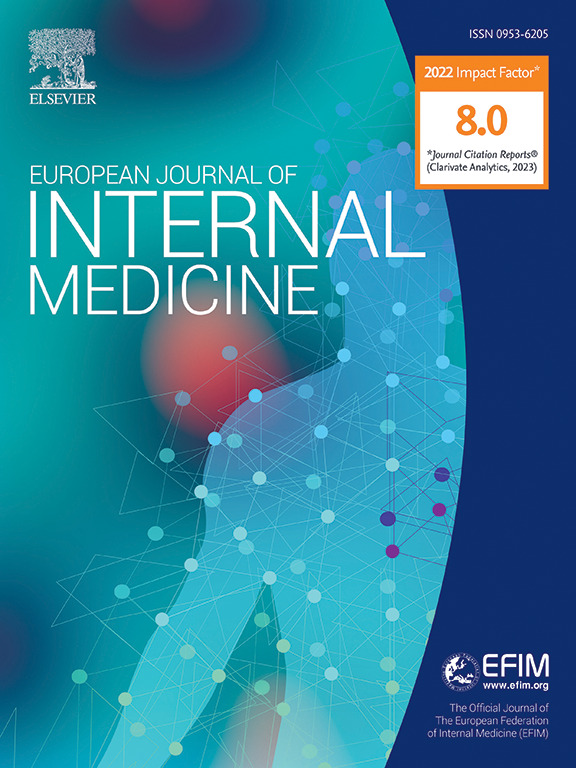Artificial intelligence and the electrocardiogram: A modern renaissance
IF 6.1
2区 医学
Q1 MEDICINE, GENERAL & INTERNAL
引用次数: 0
Abstract
Integrating Artificial Intelligence (AI) with electrocardiograms (ECG) represents a transformative shift in cardiovascular medicine, marking a modern renaissance of this traditional diagnostic technique. This article explores recent advancements in AI-enhanced ECG technologies, highlighting their potential to improve diagnostic accuracy, predict cardiovascular events, and enable personalized patient care. AI-driven ECG interpretation has demonstrated groundbreaking capabilities in the field of both structural and electrical heart diseases. Furthermore, deep learning techniques have expanded diagnostic capabilities by identifying subtle ECG patterns invisible to the human eye, improving the detection of several cardiac disorders. The increasing integration of AI-ECG into wearable technologies extends cardiac monitoring beyond conventional clinical settings, providing continuous, real-time health assessment. Despite these advancements, the widespread adoption of AI-ECG faces several challenges, such as the need for high-quality training data, ensuring algorithm generalizability across diverse populations, addressing bias in model training, and meeting critical regulatory and ethical standards. Moreover, concerns regarding explainability, physician deskilling, legal accountability, and the lack of high-quality studies proving improved patient outcomes remain key obstacles. By enhancing precision in detecting cardiovascular conditions and expanding access to proactive heart health monitoring, AI-enhanced ECG technology holds immense potential for reshaping cardiovascular diagnostics and management, always aiming at maintaining physician trust and patient safety.
人工智能和心电图:现代复兴。
将人工智能(AI)与心电图(ECG)相结合代表了心血管医学的革命性转变,标志着这一传统诊断技术的现代复兴。本文探讨了人工智能增强心电图技术的最新进展,强调了它们在提高诊断准确性、预测心血管事件和实现个性化患者护理方面的潜力。人工智能驱动的心电图解释在结构性和电性心脏病领域都展示了突破性的能力。此外,深度学习技术通过识别人眼看不见的细微心电图模式扩大了诊断能力,提高了对几种心脏疾病的检测。AI-ECG与可穿戴技术的日益整合将心脏监测扩展到传统临床环境之外,提供连续、实时的健康评估。尽管取得了这些进步,但人工智能心电图的广泛采用仍面临着一些挑战,例如需要高质量的训练数据,确保算法在不同人群中的泛化性,解决模型训练中的偏见,以及满足关键的监管和道德标准。此外,对可解释性、医生技能、法律责任以及缺乏证明患者预后改善的高质量研究的担忧仍然是主要障碍。通过提高心血管疾病检测的精度和扩大主动心脏健康监测的可及性,人工智能增强的心电图技术在重塑心血管诊断和管理方面具有巨大潜力,始终以维护医生信任和患者安全为目标。
本文章由计算机程序翻译,如有差异,请以英文原文为准。
求助全文
约1分钟内获得全文
求助全文
来源期刊
CiteScore
9.60
自引率
6.20%
发文量
364
审稿时长
20 days
期刊介绍:
The European Journal of Internal Medicine serves as the official journal of the European Federation of Internal Medicine and is the primary scientific reference for European academic and non-academic internists. It is dedicated to advancing science and practice in internal medicine across Europe. The journal publishes original articles, editorials, reviews, internal medicine flashcards, and other relevant information in the field. Both translational medicine and clinical studies are emphasized. EJIM aspires to be a leading platform for excellent clinical studies, with a focus on enhancing the quality of healthcare in European hospitals.

 求助内容:
求助内容: 应助结果提醒方式:
应助结果提醒方式:


